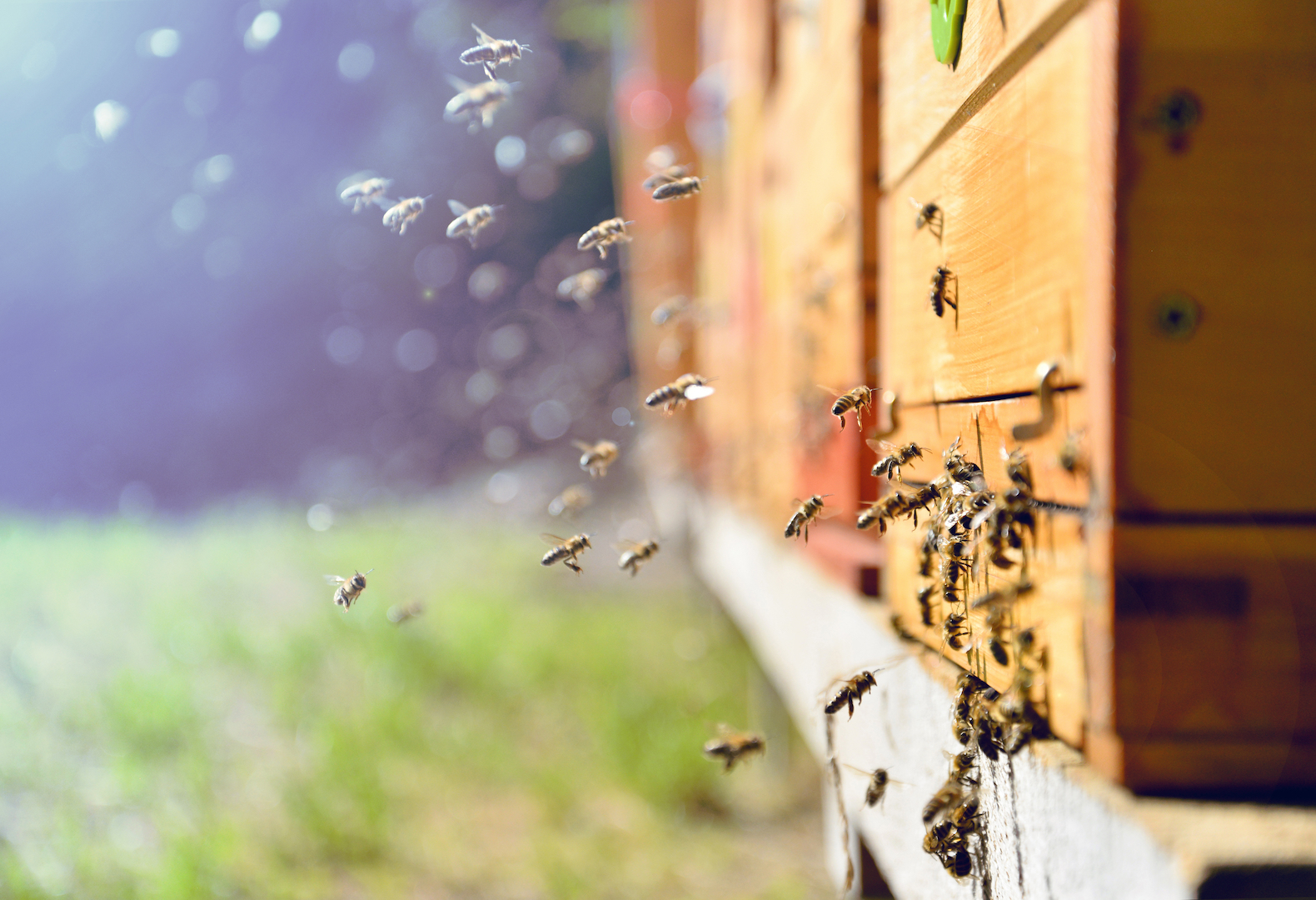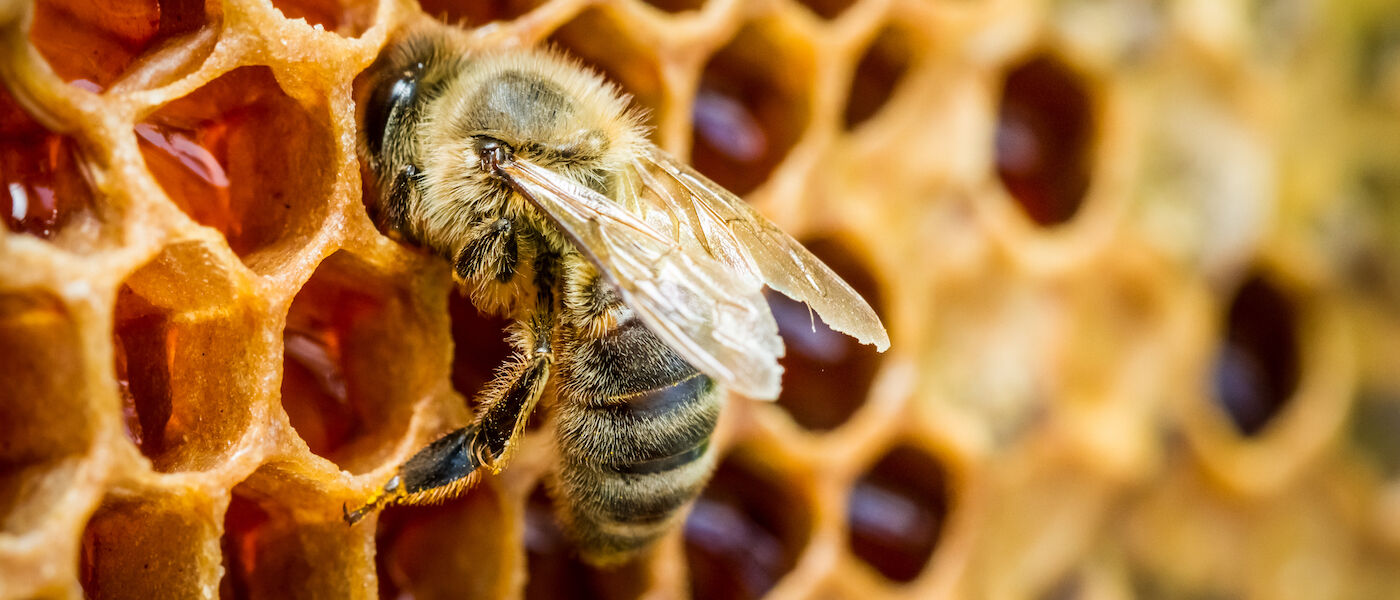How our beekeeper controls the mite threatening bees everywhere
If you’ve ever been to Liberty Science Center, then you know we’re crazy about bees! Our third floor features the Bees to Bots exhibition, an amazing gallery about the surprisingly high-tech world of bee science. This space also contains a honey bee hive, where you can see real bees – including the drones, workers, and queen bee – hard at work building honeycomb and making honey.
But did you know there’s a serious threat currently facing honeybees? It’s the troublesome intrusion of the Varroa mite (Varroa jacobsoni). Considered “Public Enemy #1” of the honeybee, these pests can be fatal. According to research, this mite has an appetite for the honey bee’s fat body organ, which is vitally important to bees and helps manage their immune system.
For apiarists – also known as beekeepers – properly controlling this mite takes a lot of knowledge and precision. Too much medication can end up killing both the mite and the bee.

We recently caught up with LSC’s own beekeeper, Joseph Lelinho from Hilltop Honey, about what he does to control Varroa mite for the Science Center’s beehive.
“I use two of the best, safest and most current mite controls available: Apivar and Formic Pro,” Lelinho says.
Apivar, which is applied in late winter and early spring, is a combination of two components: a plastic polymer strip and a sub-lethal miticide that paralyzes Varroa mites. As bees walk on the strip’s surface, they pick up molecules which are then distributed throughout the colony, killing the Varroa mites.
Formic Pro, which is applied in late summer and early fall, is also a strip placed inside the hive. This product uses formic acid as the miticide that kills the parasitic mites.
According to our beekeeper, it’s not unusual for there to be a threshold of mites in every hive – it’s only when the number is out of balance that the hives are in jeopardy. Luckily our beehive receives great care from our beekeeper, as well as LSC’s animal team!
Interested in learning more about how to properly care for animals? Join us April 19 – 28 for Conservation Week, our weeklong celebration of Earth Day. Be there for activities, experiments, and demos all about protecting our environment and keeping its creatures safe. Click here to learn more.
